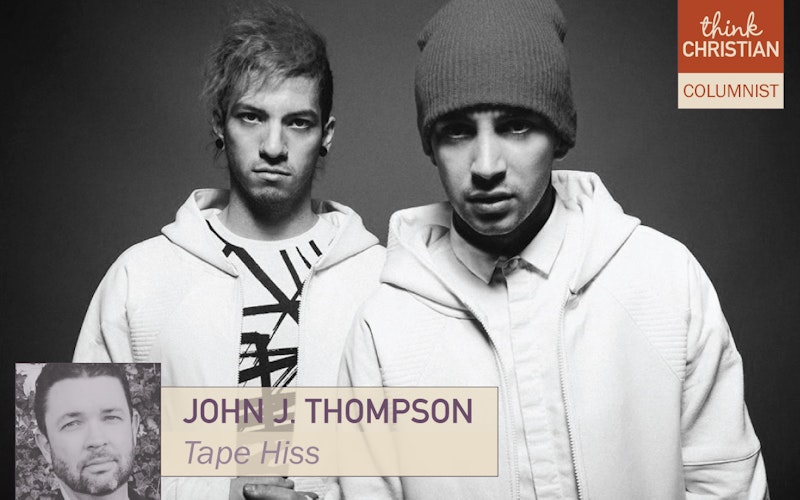
Music
The faithful eclecticism of Twenty One Pilots’ Blurryface
After a well-earned and slow rise to indie prominence with their 2013 LP Vessel, Twenty One Pilots just blew up the charts with a No. 1 album called Blurryface. Anyone even remotely interested in modern music with soul should be paying attention. Band members Tyler Joseph (vocals, keyboards) and Josh Dun (drums) have proven that genre rules are meant to be broken and that melodic and lyrical precision still have a place in contemporary music.
Joseph and Dun seamlessly blend elements of electronic pop, rap, alternative rock and even reggae as backdrops to meticulously crafted lyrics that reflect a bold hopefulness rooted deeply in eternal truths. “Blurryface” is the name of a character, or caricature, of Joseph’s highly relatable struggle with doubt, insecurity, fear, anxiety, depression and anger. It’s as if he has named the devil that is on his shoulder, whispering accusations and innuendos. The name suggests the sort of distortion that pain causes, but also points a bruised but hopeful finger at a future in which that distortion is corrected and everything becomes clear. It reminded me of Paul’s words in 1 Corinthians 13, where he observes that what we see of love now is like seeing a reflection in a mirror. Throughout the record, however, there are hints of a future resolution to this temporary blurriness. Someday we will see face to face.
Such themes often come off as ponderous, narcissistic blather when explored in modern mainstream music or overly simplistic clichés when approached by Christian acts. The secret to Twenty One Pilots’ effectiveness, however, is their artful use of humor, melody and an effectively eclectic genre palette to add emotion and irony to their highly personal reflections. Many groups have toggled between rap and singing - or between screaming and singing. Few, however, can convincingly reference reggae, new wave, EDM and pop within a few bars. “Lane Boy,” for instance, feels both incredibly current and directly related to the wave of island-influenced alt-pop that dominated college radio in the early 1980s. That song is preceded by a power-pop piano rocker (“Tear in My Heart”) that would fit on one of The Killers’ better records. The collection also includes a ukulele-sparked dancehall groove (“The Judge”) which sports a crazy, catchy chorus that also serves as a sort of desperate prayer. “You’re the judge,” Joseph intones. “Set me free.”
The musical adventurousness establishes a world in which Blurryface battles with Joseph’s true self.
This musical adventurousness establishes a world in which Blurryface battles with Joseph’s true self. It’s a disarmingly fun world for such a battle to transpire in. Many musical artists have plumbed their own pain in service of their art. On Blurryface, however, Twenty One Pilots dare to suggest that there is hope for the future, there is a hand at work and the struggle can be won, even if not in this life. Without resorting to a single cliché they craft song after stellar song, each with its own unique flavor and purpose.
While it is well known to their fans that both key members are men of faith (Joseph grew up in a Christian family and remains active with his local church and Dun pounded the skins with the Gotee Records band House of Heroes), there is not a note or phrase offered on this album that would alienate audiences of any, or no, faith. No, Twenty One Pilots is definitely not a “Christian band.” They are much more exciting than that. They are top-notch, commercially successful, modern pop artists with something powerful and important to say about fear, doubt, anxiety and hope. And they happen to be Christians. How refreshing is that?
Topics: Music, Culture At Large, Arts & Leisure